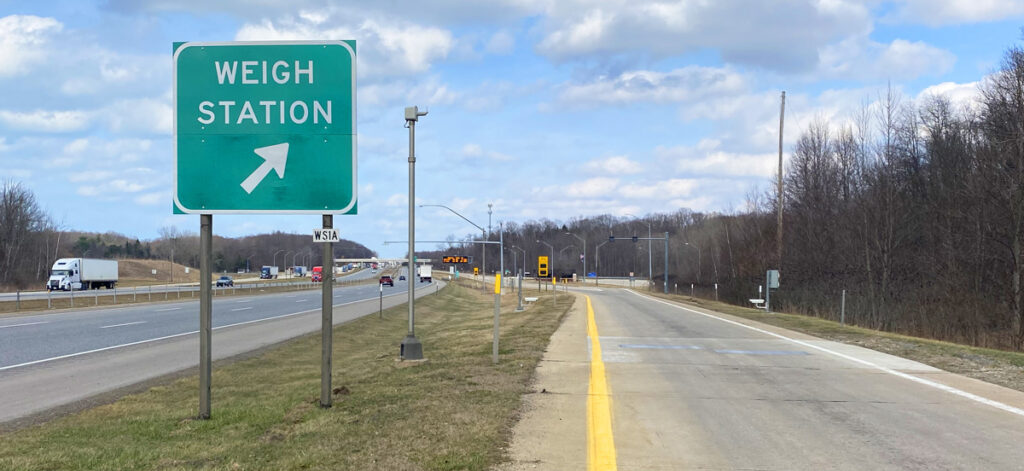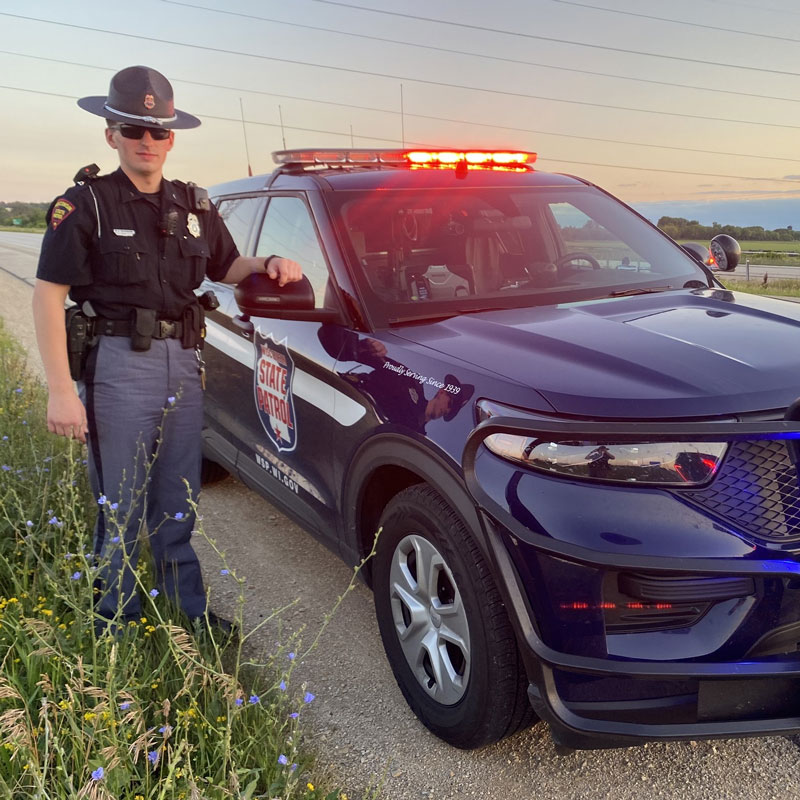Do I Need to Stop at Weigh Stations with My Trailer?

So, you’ve taken the plunge and decided to join the ranks of trailer owners. Whether it’s for work or leisure, having a trailer opens up a world of possibilities. But as you embark on this new journey, one question may loom large in your mind: Do I need to stop at weigh stations with my trailer?
It’s a valid concern, especially for first-time trailer owners who are still navigating the ins and outs of towing regulations. The short answer? Wait for it… It depends. Let’s dive into the nitty-gritty details to shed some light on this topic.
Who Needs to Stop at Weigh Stations and When?
First things first, let’s talk about weigh stations. These are checkpoints typically set up along highways to monitor the weight of commercial vehicles, including trailers. Whether you need to stop at a weigh station with your trailer depends on various factors, including the Gross Vehicle Weight Rating (GVWR) of your trailer and the regulations of the state you’re in.
If your trailer falls under the category of a non-CDL trailer, meaning it’s not subject to Commercial Driver’s License (CDL) requirements, in some states you might not be required to stop at weigh stations. However, this can vary widely from state to state, so it’s crucial to familiarize yourself with the specific regulations of the areas through which you’ll be traveling.
For those towing trailers with a GVWR above a certain threshold, typically 10,000 pounds or more, stopping at weigh stations is often mandatory. This of course depends on the state. This article by Abigail Blake spells out what the weigh station requirements are for each state, knowing such being a great place to start if you’re planning to haul a big load cross-country. These regulations are in place to ensure road safety and compliance with weight limits. A notable exception is if your trailer is de-rated, meaning it is built to handle more weight than the legally designated GVWR, something we’ll get to in more detail later in this blog post.
But even if your trailer falls below the weight threshold for mandatory weigh station stops, it’s essential to stay informed about state regulations, as they can change and vary. Ignorance of the law is not an excuse, so take the time to research and understand the requirements of each state you’ll be traveling through.
What Happens If You Get Pulled Over While Towing a Trailer and They Want to Check Your GVWR?
Now, let’s address the scenario where you’re pulled over while towing a trailer, and the authorities want to check your GVWR.

If you’re compliant with the weight regulations and your trailer’s GVWR is within the legal limits, you shouldn’t encounter any issues.
However, if your trailer is found to be exceeding its GVWR, you could face penalties ranging from fines to citations. Additionally, you may be required to offload some of the cargo to bring the weight down to a safe and legal level before continuing your journey.
It’s crucial to understand that exceeding your trailer’s GVWR can have serious consequences, not just in terms of legal ramifications but also for safety. Overloading a trailer can lead to instability, increased stopping distances, and potential damage to your vehicle and cargo.
Trailer De-rating: What You Need to Know
You may have come across the term “de-rating” in your research about trailers. De-rating refers to the process of reducing a trailer’s GVWR to align with specific requirements or preferences. The reason you would de-rate your trailer would be to avoid getting a CDL and having to stop at weigh stations. While de-rating can offer such, there are important considerations to keep in mind.
Legal Requirements
De-rating a trailer doesn’t give you a free pass to tow above the rated limit without consequences. You must still adhere to local, state, and federal regulations regarding trailer weight, size, and licensing requirements. Getting caught hauling over your trailer’s GVWR can result in penalties and pose safety hazards.
Payload Capacity
De-rating reduces the maximum weight your trailer can legally carry. It’s essential to ensure that the new GVWR aligns with your intended use and cargo requirements. While overloading your trailer above the de-rated GVWR but below the original GVWR is technically safe, as noted above, it’s not very smart in practice.
Resale Value
De-rating can impact your trailer’s resale value. While some buyers may prefer trailers with higher GVWR for certain applications, a de-rated trailer can appeal to others. Consider how de-rating may affect your trailer’s marketability before making any modifications.
Warranty Implications
Before de-rating your trailer, check with the manufacturer or dealer regarding any potential impacts on warranties. Modifying the trailer’s GVWR could void certain warranties, so it’s crucial to weigh the pros and cons before proceeding. Regardless of warranties, you may need to contact your trailer’s manufacturer to get the trailer de-rated in the first place.
Wisconsin and Illinois Weigh Stations: What You Need To Know
Let’s dive into the regulations regarding weigh stations and trucking rules in Wisconsin and Illinois, shedding light on how they may impact your towing experience.
Wisconsin Rules for Trucks Over 10,000 Pounds
In the state of Wisconsin, if you’re operating a truck with a gross weight exceeding 10,000 pounds and you approach an open weigh station, you’re required to stop. At the weigh station, your truck and its load will be weighed, measured, or inspected. This regulation is in place to ensure compliance with size, weight, and load limitations.
Wisconsin Rules for Trucks of 10,000 Pounds or Less
Trucks with a gross weight of 10,000 pounds or less in Wisconsin aren’t mandated to stop at open weigh stations as a regular practice. However, they must still adhere to all applicable size, weight, and load limitations outlined in Chapter 348 of the state statutes. Operators of such trucks must also comply with requests from traffic officers to stop and submit their truck or load to weighing, measuring, or inspecting when requested.
Illinois Rules for Non-CDL Vehicles
When it comes to trucking regulations in Illinois, there are specific size and weight limitations that must be followed. These regulations apply to both commercial and non-commercial vehicles.
Size Limitations:
- Truck operators must obey all posted signs regarding maximum truck width, length, height, and weight limits.
- Different classes of highways have varying length restrictions for truck tractor-semitrailer combinations and other vehicle combinations.
- The maximum width for most vehicles is 8 feet, with exemptions for certain situations, such as transporting farm products or operating buses within city limits.
Weight Limitations:
- The maximum weight limits vary depending on designated state and local streets and highways.
- Overweight vehicles weighing 16,000 pounds or more gross weight must stop at any official weighing station in Illinois.
- Drivers or owners of overweight vehicles are responsible for compliance and may face penalties if found to be in violation.
Exceptions:
- Certain vehicles, such as firefighting equipment or snow removal vehicles owned by governmental agencies, are exempt from size and weight regulations.
- Public utility vehicles engaged in emergency repair work are also exempt.
- Farm machinery may have exceptions, but farm tractors must not be operated on highways except for farming operations.
Understanding and adhering to these regulations is essential for safe and legal towing in both Wisconsin and Illinois. Failure to comply with size, weight, and load limitations can result in fines, penalties, and potential safety hazards on the road. So, whether you’re hauling a heavy load in Wisconsin or navigating the highways of Illinois, make sure to stay informed and follow the rules of the road.
Conclusion
In conclusion, whether you need to stop at weigh stations with your trailer depends on various factors, including its GVWR and state regulations. It’s essential to research and understand the requirements of each state you’ll be traveling through to ensure compliance with the law.
If you’re pulled over while towing a trailer, make sure your GVWR is within the legal limits to avoid penalties and safety hazards. And if you’re considering de-rating your trailer, carefully consider the legal, practical, and financial implications before making any modifications.
By staying informed and proactive, you can enjoy the freedom and convenience of towing a trailer while ensuring safety and compliance on the road. Happy towing!
